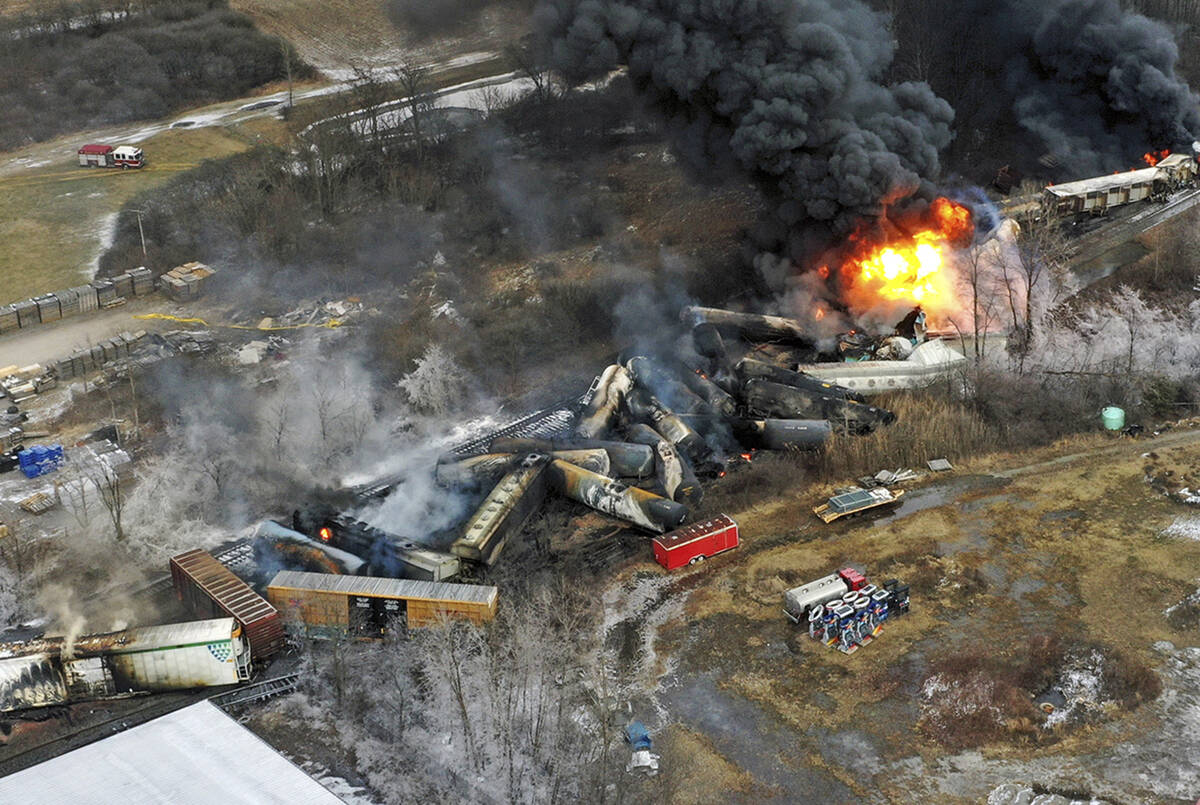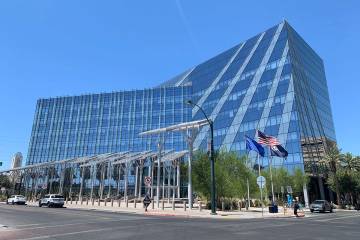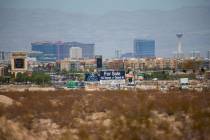Could Nevada see the next East Palestine? Bill aims to prevent accidents
On March 17, a train derailed in Beowawe, Nev., as a result of a bearing failure — the identical defect that caused the Norfolk Southern train to derail in East Palestine in Ohio, said James Becker, a freight railroad conductor based in Sparks.
Only one car fell off the tracks and caused others behind it to pile up, avoiding a catastrophe like the derailment in Ohio from happening, he told the Assembly Committee on Growth and Infrastructure on Tuesday.
Proposed legislation aims to put in place safeguards to avoid derailments in Nevada, although opponents of the bill argue it is unconstitutional.
Assembly Bill 456 seeks to implement further regulation on the rail industry by prohibiting the operation of trains that are more than 7,500 feet long. The bill also includes mandates train crews be alerted when a detector system on the track finds a defect, such as a hot wheel bearing, dragging equipment or excessive weight.
If a defect is found, an alarm would sound over the radio channel, and the train crew would be required to stop the train, inspect the problem, fix it and determine if it is safe to proceed. Those defect detectors would also have to be located no more than 10 or 15 miles apart on the track, according to an amendment in the legislation.
In East Palestine, hot box sensors detected a wheel bearing was heating up miles before it failed, but the detectors did not alert the crew until it was too late, CNN reported.
The Ohio train derailment and others across the country have sparked scrutiny of rail companies from workers, who allege they are prioritizing efficiency over safety in pursuit of profitability.
“If a similar event were to occur in a populated area such as Las Vegas or Reno, it could have a far reaching impact on the tourism industry and the surrounding communities,” said bill proponent Jason Doering, Nevada state legislative director for the International Association of Sheet Metal, Air, Rail and Transportation Workers.
Nevada derailments
In Nevada, derailments happen on a regular basis, railroad workers say. In March, a train carrying grain and cornmeal derailed in Lyon County, although no injuries were reported, and in 2019, a train carrying military munitions derailed near Wells. The railcars carrying the munitions and hazardous materials were not among those that came off the tracks, and no injuries were reported, according to Reno Gazette Journal.
According to data provided by railroads to the Federal Railroad Administration, 42 railroad-related accidents — the majority of which were derailments — were reported in Nevada in the last five years as of Jan. 31, 2023, with only one railroad car releasing hazardous material. Five injuries but no deaths were reported in those accidents. Railroad workers like Becker, however, think the number of derailments is actually higher.
Ron Kaminkow, a railroad worker who has lived and worked in Reno since 2006, argues that there have been massive job cuts to the industry, resulting in fewer inspections, less maintenance and an increase in accidents.
In the last five years, 125 railroad casualties — which include both injuries and fatalities — were reported in Nevada, according to data from the Federal Railroad Administration. Of those, 27 were on-duty employee injuries, and the majority of those were non-serious injuries, like sprains and bruises. Forty-four railroad-related deaths were reported in Nevada in the last five years, from 2019 to 2023. All of those deaths were related to people who trespassed onto the railroad.
One major cause of derailments is the increase in train length, Kaminkow said. Years ago it was rare for a train to exceed 7,500 feet in length, but now trains can be 15,000 feet long and can lead to more derailments, blocked traffic and obstruction of the movement of passenger trains.
“America’s rail workers have been asking for far too long that companies take bold measures to ensure their safety,” said Nevada State AFL-CIO Executive Secretary-Treasurer Susie Martinez in a statement. “Without increased protections, it is only a matter of time before railroad accidents like the ones we’re seeing in other states occur in Nevada.”
Constitutional questions
Opponents of the legislation — mainly railroad companies as well as trucking companies — say the bill is not constitutional, arguing that the state is prohibited from directly regulating the railroad industry’s economic decisions.
If every state had a different train length requirement, interstate commerce would be impacted, said Joe Guild, a representative with Union Pacific Railroad.
The legislation would restrict the flow of commerce in and out of Nevada and would impact the supply chain, said Peggy Ygbuhay, who leads public affairs in Nevada and California for Union Pacific Railroad. The longer trains allow rail companies to use resources efficiently and reduce the number of work events employees are required to perform, Ygbuhay said.
“Operating a safe and efficient railroad is Union Pacific’s top priority,” Ygbuhay said. “Maintaining the safety of our employees, the public and our customers is at the core of everything we do.”
Contact Jessica Hill at jehill@reviewjournal.com. Follow @jess_hillyeah on Twitter.





























